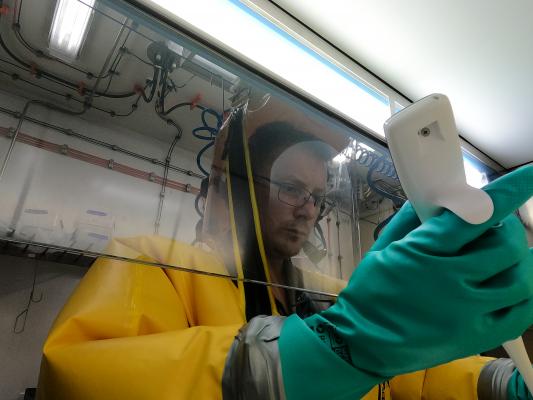Geelong scientists have played an important role in developing heat-tolerant COVID-19 vaccines to help the Third World escape the devastating consequences of the pandemic.
Most COVID-19 vaccines need refrigeration to remain effective, like AstraZeneca, which must be kept between two and eight degrees Celsius, and Pfizer, which requires specialised storage at -70°C.
But CSIRO scientists at the Australian Centre for Disease Preparedness recently tested the efficacy of new vaccine formulations developed by the Indian Institute of Science and biotech start-up Mynvax.
The Mynvax vaccine formulations triggered a strong immune response in mice, protected hamsters from COVID-19, and remained stable at 37°C for up to a month and at 100°C for up to 90 minutes, according to project leader and co-author Doctor SS Vasan.
Their work, published in the peer-reviewed ACS Infectious Diseases journal last month, indicates the vaccine is effective against all current variants of the virus causing COVID-19.
“Our data shows that all formulations of Mynvax tested result in antibodies capable of consistent and effective neutralisation of the alpha, beta, gamma and delta SARS-CoV-2 variants,” Dr Vasan said.
The evaluation of different Mynvax formulations will support the selection of the most suitable candidate for planned human clinical trials in India later this year.
CSIRO’s health and biosecurity director Rob Grenfell said the pandemic had demonstrated a need for global scientific collaboration to address the urgent demand for cost-effective vaccines.
Vaccines that can withstand warmer temperatures were vital for countries with hot climates lacking reliable cold storage, Dr Grenfell said.
Along with countries near the equator, like India, this could include regional communities in Indo-Pacific region and even the Australia’s outback, he said.
A grant from Australia’s federal Department of Finance supported the CSIRO study.









